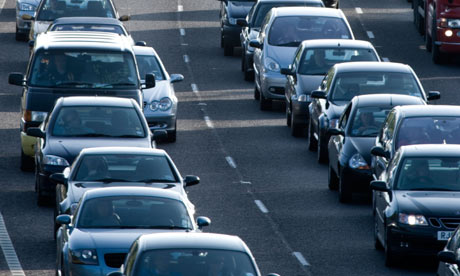
 Last week 32 leading Transport Professors warned the Government that it should not rush decisions on big transport infrastructure projects. In an open letter they warned Transport Secretary Patrick McLoughlin that the assumption that new transport projects will provide an automatic stimulus to the economy is misplaced. There is an urgent need for a clear long-term national policy framework.
Last week 32 leading Transport Professors warned the Government that it should not rush decisions on big transport infrastructure projects. In an open letter they warned Transport Secretary Patrick McLoughlin that the assumption that new transport projects will provide an automatic stimulus to the economy is misplaced. There is an urgent need for a clear long-term national policy framework.
Not before time. And it was good to see this letter receive coverage in The Financial Times, The Daily Telegraph and The Daily Mail. Let’s hope it opens up a full and frank debate.
Fundamental contradictions
There are a number of fundamental contradictions contained within the current strategy. A big programme of inter-urban road building could actually worsen congestion. Our cities are not equipped to take further growth in road traffic and the benefits of faster journey times on strategic networks risk being lost in greater congestion on local urban roads where most journeys are taken.
The relaxation of land use planning policy is a potential time bomb storing up major problems for the future. The Professors praise travel behaviour change programmes and champion good land-use and transport policy integration.
They also highlight some thorny issues which must be tackled however politically challenging. We need to find a new way of charging for motoring as we move away from fossil fuels. Tax revenues are forecast to fall as vehicle fuel efficiency improves. Some form of road pricing has to be inevitable.
More cost effective solutions
In his 2006 review, Eddington highlighted the risk that transport policy can become pursuit of “icons” or “grand projets” which develop momentum driven by lobbying even though the benefit cost ratio is low. In his view, improved bus services can sometimes offer a higher return and more flexible and responsive solutions than more costly fixed infrastructure schemes.
Buses have a key role in urban areas where scope for new road, heavy/light rail may be limited, and they offer a very cost effective way to reduce congestion and support productive urban labour markets. Bus commuters generate £64 billion in economic output.
Unintended consequences
One of the biggest challenges we face is the squeeze on revenue funding that has resulted from the increased focus on capital spending on transport infrastructure. This has been bringing with it unintended consequences to the rest of the transport system. Buses are especially vulnerable and have fared worse than other modes in recent cuts. Research by the University of Leeds revealed that last year 11% of bus commuters were forced to turn down the offer of a better more productive job due to lack of a bus service. Government should take note here. Welfare-to-work figures have been disappointing, and buses are fundamental to getting to people to work.
The Professors are right to call for a radical rethink of transport policy. What we need is to make best use of existing capacity, and to provide improved transport for those who need it most to get back to work and to get the economy moving again.
About the Author
This post was written by Claire Haigh. Founder & CEO of Greener Vision & Executive Director of the Transport Knowledge Hub. Claire was previously CEO of Greener Transport Solutions (2021-2022) and CEO of Greener Journeys (2009-2020).
